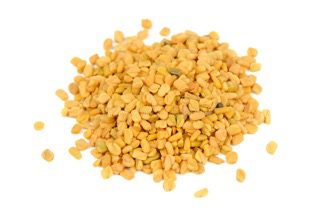

Moderate consumption of cooked fenugreek can enhance dogs’ health by improving digestion, alleviating arthritic pain, and supporting smooth digestion. However, overfeeding should be avoided as it can drastically lower blood sugar levels and pose a risk of poisoning.
Fenugreek is a good source of fiber that promotes healthy digestion and slows down sugar and carbohydrate absorption. It also contains antioxidants that boost the immune system and counteract free radicals, lowering the risk of cancer and other chronic diseases. Additionally, fenugreek’s anti-inflammatory properties help reduce pain in dogs with arthritis.
Fenugreek contains saponins, which can be toxic to dogs in large quantities. Thorough cooking can significantly reduce the saponin content. Dogs with food allergies or sensitivities may experience allergic reactions, including itchiness, skin irritation, vomiting, diarrhea, and stomach upset. Fenugreek may also lower blood sugar levels and cause hypoglycemia in dogs. It’s best to avoid giving fenugreek extracts or oil to dogs as they contain concentrated amounts of compounds that may be toxic.
Add a small quantity of chopped fresh or dried fenugreek leaves and seeds to your dog’s food or consider fenugreek supplements specially formulated for dogs. It’s always important to seek professional advice from a veterinarian before using any plant medicinally for your dog.
Fenugreek is a herb commonly used in Indian cuisine and is known for its medicinal properties. It contains vitamins A, C, and K, as well as calcium, iron, and potassium. For dogs, fenugreek can aid in digestion and improve their coat and skin health. It can also help regulate blood sugar levels and boost their immune system.
However, fenugreek should be given in moderation to dogs as excessive consumption can cause diarrhea and upset stomach. It can also interact with certain medications, so it's important to consult with a veterinarian before giving it to your dog.
In extreme cases where your dog has consumed too much fenugreek, seek veterinary attention immediately. Signs of overdose include vomiting, diarrhea, and loss of appetite.